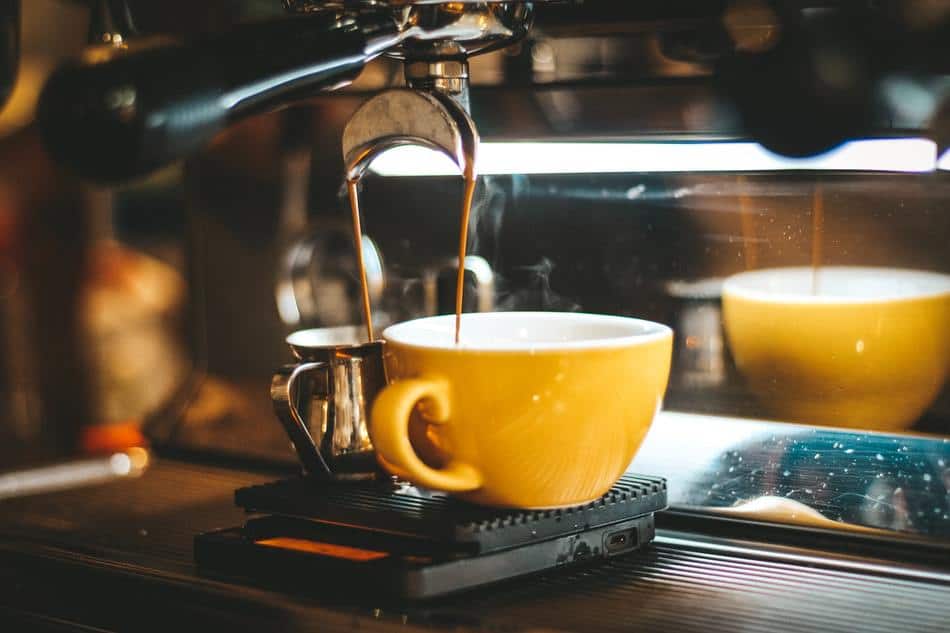Do you like to drink espresso shots all day long? If so, you might be wondering how many shots of espresso is too much? In this article, I will discuss the effects of drinking too many espressos and how they can impact your health. I will also provide some tips for reducing your caffeine intake. So, whether you’re a casual coffee drinker or a die-hard espresso lover, read on to learn more!
A single shot of espresso can contain anywhere from 64-to 100mg of caffeine. So, how many shots of espresso is too much? For most people, the answer is somewhere between two and four shots. This may vary depending on individual tolerance levels, but generally speaking, more than four shots is considered too much.
Health Limits Of Coffee Intake
We all know that coffee is packed with antioxidants and caffeine. But, did you know that the FDA has set limits on how much coffee is safe to consume in a day? According to the FDA, the maximum amount of coffee someone should drink in a day is 400 milligrams. That’s about four cups of coffee. However, some experts say that it’s only safe to have two cups of coffee a day. So, what’s the verdict?
It depends on the person. If you are sensitive to caffeine, then you should stick to two cups of coffee a day. However, if you can handle more caffeine, then four cups may be fine for you. Just make sure that you don’t go over 400 milligrams of caffeine a day.

How Many Shots Of Espresso Can Kill You?
Caffeine is a relatively safe drug, but like anything, it can be dangerous in large doses. A lethal dose of caffeine is estimated to be about 150mg per kilogram of body weight. For most people, this would translate to about 15 grams of caffeine or about 30 cups of coffee.
So yes, it is possible to overdose on espresso, but it would take a lot of coffee to do so. And even then, death from caffeine overdose is very rare. So don’t worry too much about it and enjoy your coffee!
How Long Will A Shot Of Espresso Last In The Body?
Espresso contains a high level of caffeine, which is a stimulant. The caffeine in espresso can cause side effects such as jitters, anxiety, and increased heart rate. If you are sensitive to caffeine, it is best to limit your intake of espresso.
The effects of espresso will differ from person to person, but in general, a shot of espresso will last anywhere from 30 minutes to four hours. The caffeine in espresso works by stimulating the central nervous system, which can lead to increased alertness and energy levels. While this may be beneficial for some people, others may find that the side effects of espresso are not worth the boost in energy. Therefore, it is important to be aware of how your body reacts to caffeine before consuming espresso.
Is Espresso Stronger Than Coffee?
Espresso is stronger than coffee. The espresso beans are roasted longer, which brings out more of the caffeine and other bitter compounds. And because espresso is concentrated, you’re getting a higher dose of those compounds in each sip.
So if you’re looking for a real jolt, go for espresso. Just don’t forget to take it easy on the sugar and cream. Otherwise, you might end up with an even bigger jolt than you bargained for!

Is It Okay To Take Espresso On An Empty Stomach?
There’s no need to worry about taking espresso on an empty stomach. Many people find that it helps them wake up and start their day. However, if you’re concerned about the acidity levels in coffee, you can always add a splash of milk or cream to your cup.
Espresso is also a great way to get a quick energy boost when you need it. If you find yourself feeling sluggish in the afternoon, try drinking a small cup of espresso. It can help you stay alert and focused for the rest of the day.
So go ahead and enjoy your espresso without worrying about its effects on your stomach. Just be sure to listen to your body and stop if you start feeling any discomfort.
Will Adding Milk To Espresso Reduce The Caffeine Levels?
In short, no. Milk does not have any effect on the caffeine levels in espresso. So if you’re looking to reduce your caffeine intake, you should avoid adding milk to your espresso.
There are a few reasons why milk doesn’t affect the caffeine levels in espresso. First, the caffeine in espresso is already highly concentrated, and adding milk will not make it more concentrated. Second, milk has fat and protein which slow down the absorption of caffeine into the bloodstream. However, this only applies to regular cow’s milk – skimmed milk speeds up the absorption of caffeine.
Tips On How To Reduce Caffeine Intake
Caffeine can have side effects, including anxiety, restlessness, tremors, irregular heartbeat, and high blood pressure. If you consume too much caffeine, it can lead to addiction and withdrawal symptoms when you try to quit.
If you want to reduce your caffeine intake or quit altogether, here are a few tips:
- Start by cutting back gradually. If you drink four cups of coffee a day, start by reducing it to three cups for a few days before cutting back further.
- Replace caffeinated beverages with decaf versions or herbal teas.
- Avoid drinking caffeine late in the day so it doesn’t interfere with your sleep.
- Be mindful of other sources of caffeine, such as energy drinks, soda, and chocolate. Cut back on these as well.
Bottom Line
If you’re new to espresso, start with one shot and work your way up. See how your body reacts to the caffeine and adjust accordingly. And remember, moderation is key – too much of anything can be a bad thing! So enjoy your coffee in moderation and savor the flavor of a well-made espresso. Thanks for reading, you can learn more about coffee by checking my other articles.
Related Articles

